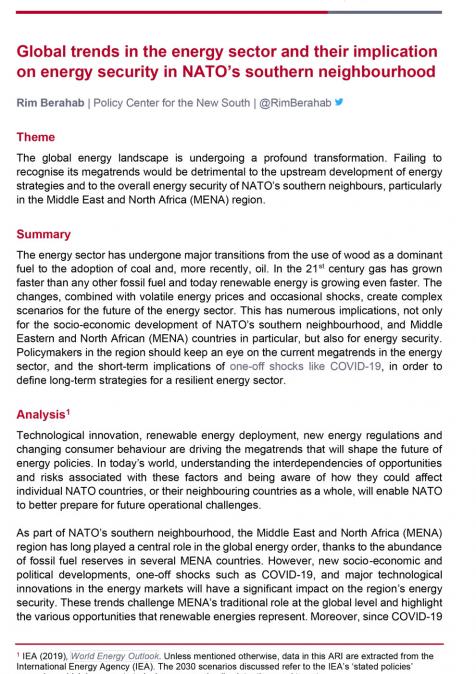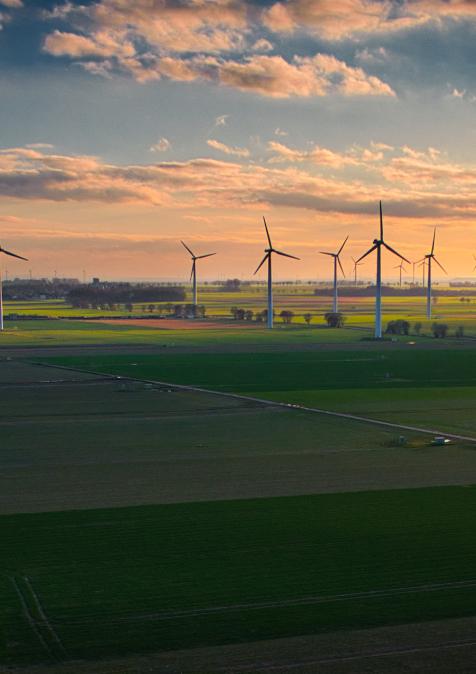Publications /
Policy Brief
The energy sector has undergone major transitions from the use of wood as a dominant fuel to the adoption of coal and, more recently, oil. In the 21st century gas has grown faster than any other fossil fuel and today renewable energy is growing even faster. The changes, combined with volatile energy prices and occasional shocks, create complex scenarios for the future of the energy sector. This has numerous implications, not only for the socio-economic development of NATO’s southern neighbourhood, and Middle Eastern and North African (MENA) countries in particular, but also for energy security. Policymakers in the region should keep an eye on the current megatrends in the energy sector, and the short-term implications of one-off shocks like COVID-19, in order to define long-term strategies for a resilient energy sector.
This article was originally published on Real Instituto elcano Royal Institute.






